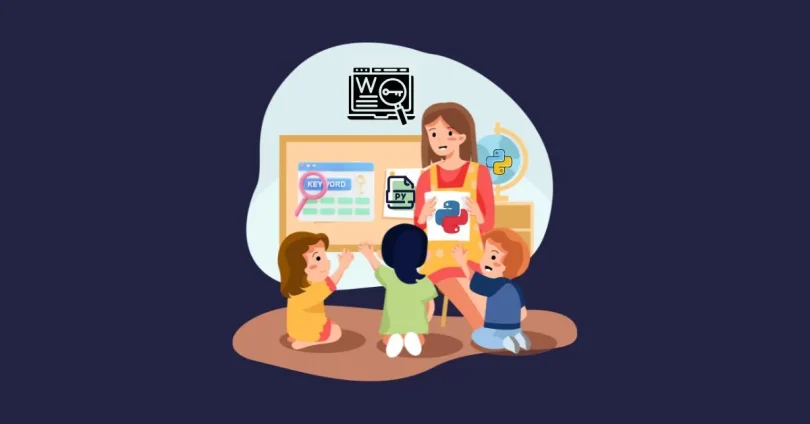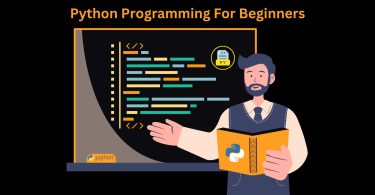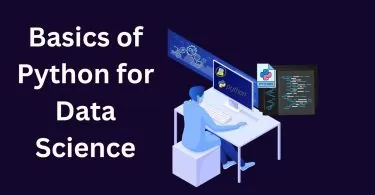Want to introduce your child to Python programming but unsure where to begin?
You’re not alone here. Many parents want their kids to learn programming, but feel stuck on where to begin, especially if they don’t come from a tech background.
Your child can learn one of the most powerful coding languages without needing programming experience because this guide provides fun ways to teach Python keywords, just like a game-like approach to Python learning. This guide demonstrates how your child can learn Python through entertaining game-based activities.
The approaching 2025 marks coding as a fundamental competency that has surpassed being an interesting childhood pastime. Python stands first among languages that work well for beginners as it maintains its position in leading this category.
The best part? Educating students about Python keywords becomes exciting through methods that maintain their interest while helping them learn effectively.
Here’s how to make it happen.
Why Teach Python to Kids?
Before jumping into the process, let’s explore the reasons Python makes an excellent starting point for your kids.
- Easy to read
- Instant results
- Used in real life
But to start building real Python programs, your kids need to understand its keywords: reserved words that tell Python what to do.
What Are Python Keywords?
Python keywords are special words that have a predefined meaning in the language.
These terms are reserved by the language and cannot be assigned as variable identifiers. Some common keywords include:
- if
- else
- elif
- while
- for
- def
- class
- True / False
- import
- return
Kids can’t move forward in Python without knowing what these mean and how to use them.
7 Fun Ways to Teach Python Keywords to Your Kids in 2025
Keyword Story Time
Turn keywords into characters in a story.
For example:
“If the dragon is angry, the knight hides. Else, the knight attacks.”
This approach turns logic into a fun adventure. Kids get the structure of conditionals without even realizing they’re coding.
Code with Games
Use platforms like CodeCombat, Tynker, or Scratch with Python extensions.
These platforms teach Python basics using interactive puzzles and quests.
These games naturally introduce keywords like while loops and if statements through gameplay. Kids learn the logic by playing, not by memorizing syntax. From what I’ve found, this method is the most effective for helping children grasp Python keywords.
DIY Python Card Game
Create flashcards with keywords on one side and fun examples on the other.
Example:
Front: for
Back: “For each cookie, eat it.’”
Make it a group activity; quiz them, play match-up, or turn it into a scavenger hunt for keywords in their code. Group activities enhance your kid’s brain activities and stimulate their minds in positive way to learn faster.
Real-Life Scenarios
Relate keywords to everyday kids’ chores, activities or decisions.
For example:
If you’re hungry, eat a snack.
Else, keep playing.
My experience says that using real-life situations helps them understand conditional logic naturally.
Build Mini Projects
Let kids create simple Python projects that focus on specific keywords. Ideas include:
- A number guessing game using if-else
- A loop-based quiz using while
- A function-based calculator using def and return
- Hands-on projects reinforce learning through doing, not just reading.
With hands-on practice, your kids will learn faster and will not forget Python keywords easily.
Interactive Visual Tools
Use visual-based platforms like “Thonny IDE” or “Mu Editor”. These tools are beginner-friendly and highlight keywords automatically, making it easier for kids to spot and understand them.
Some tools even come with a “step-by-step” debugger, so kids can watch how the code flows with each keyword in action.
Reward Creativity
Let kids experiment.
Encourage them to try new ideas, even if they break the code.
The goal is not perfection.
Praise their creativity when they use keywords correctly in unique ways.
You can also host a fun “Code Challenge Day” where your kids show off short Python projects using specific keywords.
Tips for Teaching Python Keywords Effectively
With these simple tips/steps, you can boost your kids’ learning journey and enhance their coding confidence.
- Use simple language: Avoid technical jargon; explain things in kid-friendly terms.
- Be patient: Every child learns at their own pace.
- Mix it up: Blend visuals, games, and storytelling to keep things interesting.
- Make mistakes okay (accept their mistakes/errors): Celebrate debugging as part of learning.
Final Thoughts
In 2025, equipping your child with Python programming skills isn’t just a trend; it’s a vital step toward their future success. Python is an excellent language for your children because it offers simplicity and versatility, which helps develop creativity and problem-solving abilities and logical thinking skills.
Kids can learn Python in a fun and engaging way, it doesn’t have to feel like a traditional classroom lesson. Your kids will master programming through interactive activities using keywords that transform into stories, as well as games and small challenges.
The main purpose is to develop self-belief and curiosity. After mastering Python keywords, your kids will find the rest of the language simpler to understand.
The introduction to Python learning can succeed using CodeCombat, Tynker, or JetLearn because these platforms create an exciting way to learn Python. Your child should explore coding through hands-on practice since practical experience remains the most effective way to learn programming.
FAQs-Teaching Python to Kids in 2025
Children as young as 6 can begin with visual programming tools like Scratch. By ages 8 to 10, many are ready to transition to Python’s text-based coding, especially with platforms that offer guided learning paths.
Absolutely. Python’s straightforward syntax and readability make it one of the most beginner-friendly programming languages, ideal for kids and adults alike.
Incorporate storytelling, games, and real-life scenarios into lessons. Use platforms like CodeCombat and Tynker that gamify coding, make it interactive, and enjoyable.
Start with simple projects like a number guessing game, a basic calculator, or a story generator. These projects reinforce fundamental concepts and keep kids engaged.



